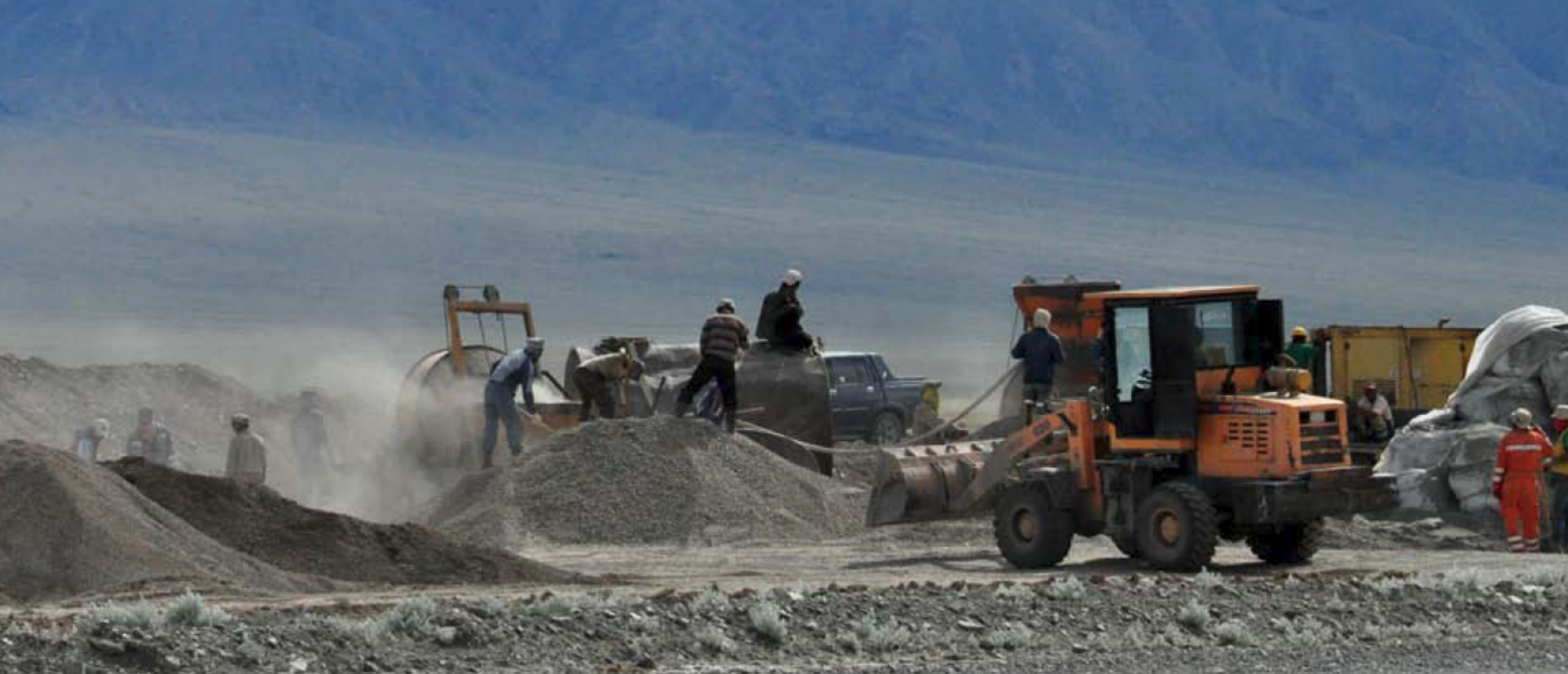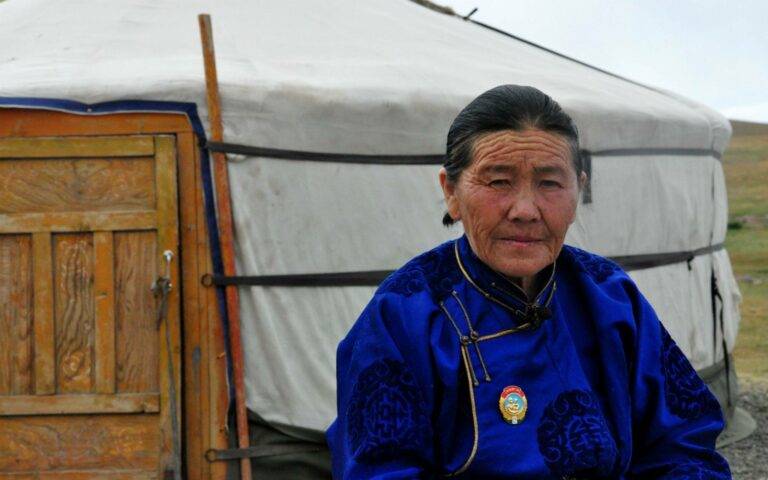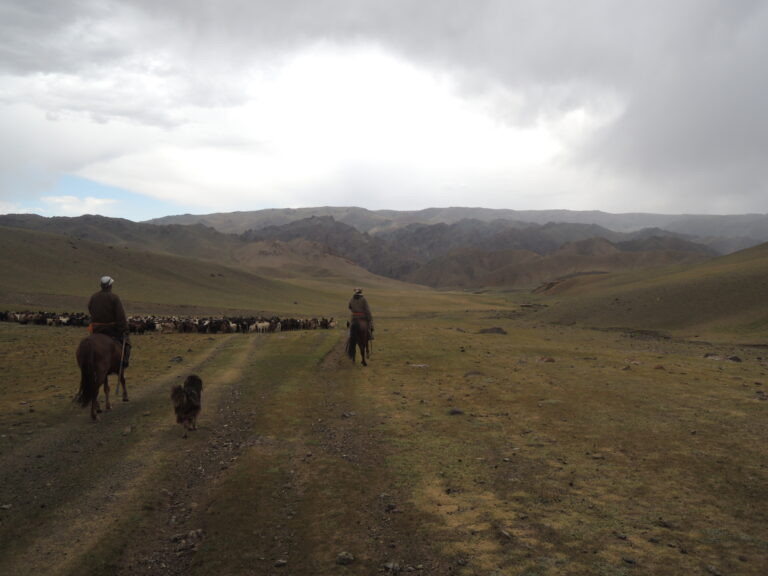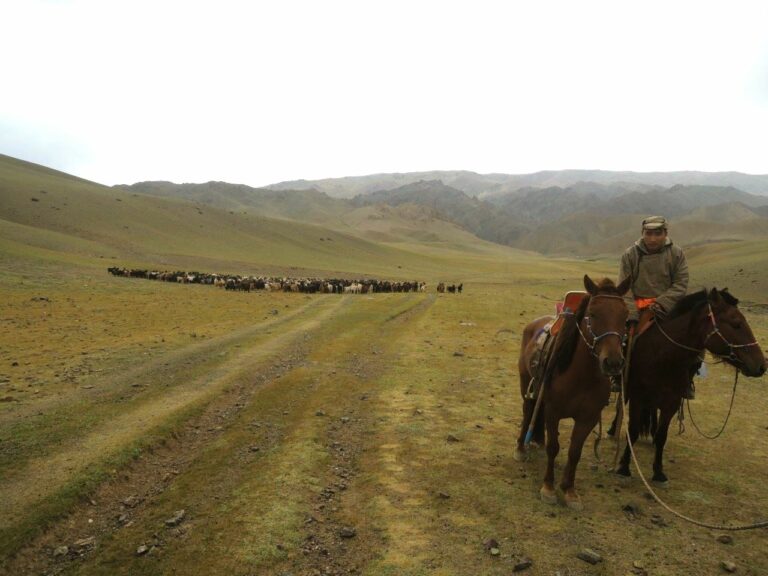
Investigation launched into Mongolian iron ore mine
Last week, the independent accountability mechanism of the European Bank for Reconstruction and Development (EBRD) announced it will investigate the EBRD’s compliance with its environmental and social standards in the EBRD-financed mine, operated by Althain Kuder in the Gobi-Altai region of Mongolia. The investigation comes in response to a complaint filed to the EBRD’s Project Complaint Mechanism (PCM) in December 2014 from herders affected by the iron ore mine.
The herders had also requested that the PCM convene a dialogue with the company to address issues of displacement and dust pollution, but the PCM rejected that request. In response to the PCM’s determination, documented in its Eligibility Assessment Report which was published on 28 August, Amibukh, one of the complainants, expressed, “Although we hoped that the PCM could get the company to finally listen to all our concerns, we are not surprised that the company is not cooperating. They have been unresponsive to all our attempts to resolve the issues so far. It’s disappointing, but at the same time we are pleased that there will be an investigation. We invite the PCM to come visit us in Tseel soum and assess the impact of the mine on our lives”.
Dialogue
The Eligibility Assessment Report reveals the deteriorating relationship between the EBRD and Altain Khuder. As a result, the EBRD has not received any information from the company regarding environmental and social issues since mid-2013, making it impossible for the Bank to fulfill its obligation to monitor the implementation of the agreed action plans. The PCM found that the deteriorating relationship was also, in part, the reason for rejecting the complainants’ request to convene a dialogue between the parties, stating that “the PCM would not be viewed as a suitable forum for dialogue between the Complainants and the Client.” It also cited the lack of cooperation of the EBRD’s client, “the Complainants continue to assert that the Client refuses to engage with them, [and is] in some cases purportedly pursuing legal action against them.”
“We are very disappointed by the PCM’s reasoning for finding the problem solving request not eligible. The fact that Altain Khuder refuses to engage with the herders is exactly why we requested the problem-solving process in the first place,” says Anne Schuit, researcher at the Amsterdam-based Centre for Research on Multinational Corporations (SOMO). “Nevertheless, we hope the compliance review will provide clear recommendations for improvements to the project that will result in meaningful improvements for the lives and livelihoods of the herders.”
Standards of the EBRD
Sukhgerel Dugersuren, director at OT Watch, states “It is unacceptable that a company financed by the EBRD can cause unmitigated environmental and social impacts, refuse to engage with the Bank or the PCM, and get away with it. It is the EBRD’s responsibility to ensure that its borrowers comply with its standards and do not further impoverish the communities where they work. We hope that the compliance review will help resolve these issues for the relocated local community members after all.”
The complaint, filed by seven individuals in December 2014, alleges that the mine displaced herders and left them without a suitable alternative resettlement site. As a result they are unable to sustain their livelihoods. In addition, dust pollution as a result of the export of iron ore from the mine to China allegedly causes illnesses to herders and their animals. Herders have brought these impacts to the attention of the company on numerous occasions but rather than solving the problems the company has reacted with intimidation and legal action.
Mining boom
“At the start of the mining boom in Mongolia, Bankwatch warned the EBRD that it would be unsustainable to make Mongolia dependent on mining exports. With slowing demand from China, the Altain Khuder case demonstrates that communities are paying the price for the EBRD’s short-sightedness and are left without redress,” says Fidanka Bacheva-McGrath, EBRD campaign coordinator at CEE Bankwatch Network.
For the investigation, the PCM will assess the EBRD’s compliance with its own environmental and social standards in relation to its investment in Altain Khuder. The Eligibility Assessment Report includes a Terms of Reference for the investigation and identifies the PCM expert responsible for it. The Terms of Reference also provides for the possibility of a site visit to Mongolia. According to the Terms of Refenece, the review should be completed in 60 business days, unless further time is needed.
- For the complaint, click here(opens in new window) .
- For a report on a fact finding mission to the Tayan Nuur mining area in Mongolia, please click here(opens in new window) .
- For a multimedia story, please click here(opens in new window) .
- For a case study on Altain Khuder and the mining project, please click here.
- For other press releases regarding this case, click here(opens in new window) .
Do you need more information?
-

Joseph Wilde-Ramsing
Advocacy Director
Related content
-

-

-
 European Development Bank accepts complaint submitted by Mongolian herders about iron ore mining companyPosted in category:NewsPublished on:
European Development Bank accepts complaint submitted by Mongolian herders about iron ore mining companyPosted in category:NewsPublished on: -
Impacts of the global iron ore sector Published on:T. SteinwegPosted in category:PublicationT. Steinweg
-


